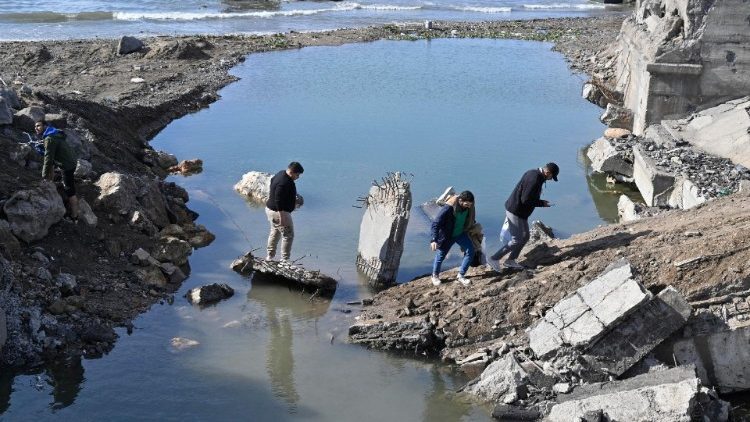Humanitarian aid and pastoral support continue to reach Christian communities in Syria, despite the recent upheaval in the country, said Michel Constantin, regional director for CNEWA-Pontifical Mission for Lebanon, Syria, and Egypt.
In a status report dated 10 December, Mr. Constantin said his team communicated with partners in the local Church, who “have all confirmed that the situation remains stable with the rebels.”
The Christian community in Syria initially reacted to the fall of the regime of Bashar al-Assad on 8 December with mixed feelings, but is now hopeful the situation will improve, said Mr. Constantin.
He said church officials were “assured… that the new authority on the ground will be committed to providing all protection to all citizens, and especially the Christians,” who have communities in the majority of Syria’s large urban centers.
Church officials were also told “the current chaotic acts will be controlled soon to prevent the thieves and gangs from benefitting from the situation,” he reported.
Syria’s three patriarchs spoke out about the situation, issuing a call to “unify efforts” and “stand by their people.”
Patriarchs John X of Antioch and All the East, Aphrem II Karim of the Syriac Orthodox Church, and Joseph Absi of the Melkite Greek Catholic Church highlighted “the importance of preserving the Christian presence and upholding the values of citizenship and coexistence,” according to a report in The Orthodox Times on 11 December.
Mr. Constantin described the “new status quo” in Syria since the fall of the Assad regime as “a fragile balance” among three groups. These include the rebels, who control about 65 percent of the Syrian territory, including major cities, the Kurds, who control about 30 percent of Syrian territory in the northern and eastern regions, and another rebel group along the southern border, where the Druze minority lives, which Israel crossed earlier this week to create a nine-mile buffer zone along the border.
By Laura Ieraci, CNEWA / vaticannews






